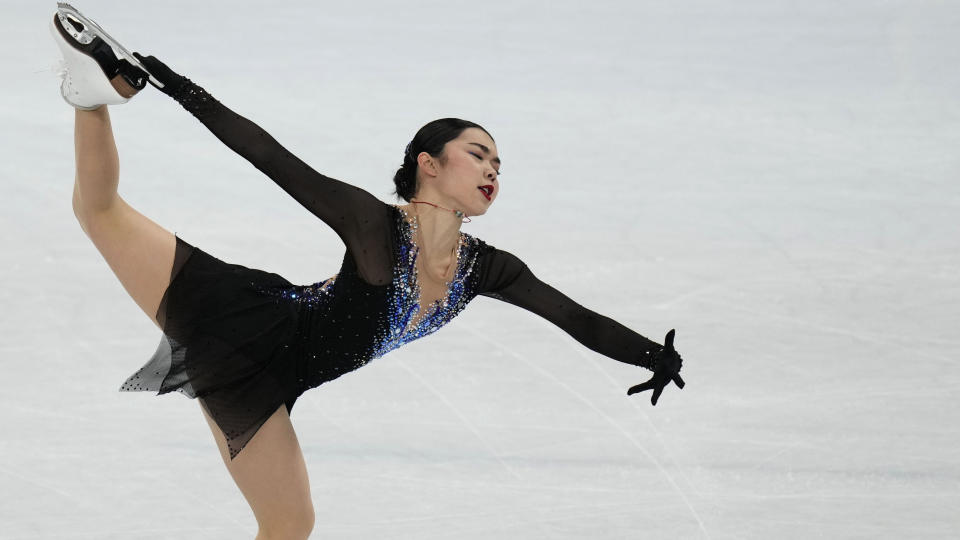BEIJING — Karen Chen had dreamt of the moment. She’d watched it from afar over the years, at various Olympics and across various sports. She’d seen athletes ascend to podiums in slick tracksuits, with pride on their faces and teammates by their sides. She’d craved it, and she earned it last week when she and eight other U.S. figure skaters won silver in the team event.
But she never got it. And, she learned Tuesday, she never will.
She’ll get a medal. It might be silver. It might be gold. The color will depend on a resolution in the Kamila Valieva case. But with that resolution likely months away, the IOC executive board decided Monday to withhold medals until Valieva is either cleared or convicted, and Russia either crowned or disqualified.
So Chen and her American teammates will not get their moment. And that, she said, was “definitely upsetting.” And “disappointing.”


Even if the medal she received turned out to be the wrong one, or even if the ceremony featured no medals at all, “to just stand on the podium in our medal ceremony outfits, I think that’s just such a special moment,” she said. She’d treasure it.
“I wish we got to have [it],” she said.
There are countless ramifications of the Valieva scandal. Several are more significant than this one. But the IOC’s decision to cancel two medal ceremonies — for the team event, which Valieva and Russia won; and for the women’s singles competition, which Valieva will likely win — has harmed innocent bystanders and saddened them. Chief among them is Team USA.
“I know all the people in the team want to receive the medals here as a team,” U.S. ice dancer Madison Hubbell said Monday. “If we miss that opportunity, it’s huge disappointment.”
The decision has even upset skaters unaffected by it.
“I feel sorry for anyone who gets on the podium,” Great Britain’s Natasha McKay said Tuesday. “They won’t get that experience, and it is such a big part of the Olympic Games — to get the medals.”
Switzerland’s Alexia Paganini agreed: “I feel sorry for the skaters who have a chance at a medal — that you can’t have your moment in front of the whole world.”
The IOC’s dilemma, of course, is that Russia would also get that moment — a moment that, if it cheated, it would not deserve. Alysa Liu, a 16-year-old American who did not partake in the team event, said she understood why the decision was made.
But “it’s a little strange,” she said. “And it kinda sucks that [my teammates] don’t get to do it.”
On Tuesday, after the U.S. Olympic and Paralympic Committee adopted a similar stance, the USOPC’s Athletes’ Advisory Council came out swinging.
“Clean athletes who accomplish the incredible feat of winning an Olympic and Paralympic medal deserve the opportunity to have a medal ceremony and be celebrated at the Games,” the U.S. athlete representative body said in a statement. “We are devastated that the United States Figure Skating Team and other medalists could potentially be leaving Beijing without such a celebration. All competitions at the Games must finish with a medal ceremony and we request that the IOC not take this away from athletes.”
And the hardest part, for many of those athletes, was that they were being penalized for someone else’s mistakes.
“Obviously I felt sad for my teammates,” U.S. skater Mariah Bell said Tuesday. “It seems wrong to punish people who have done things the right way.”
